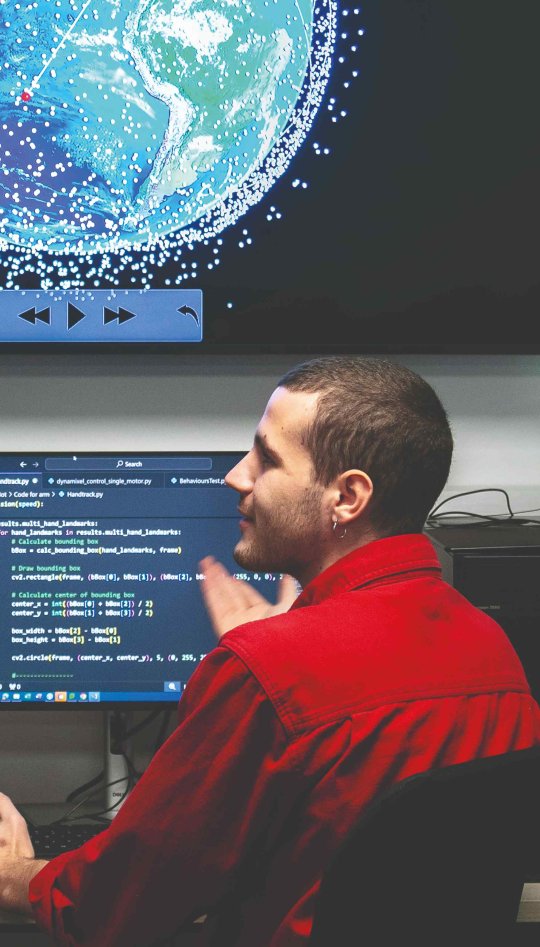
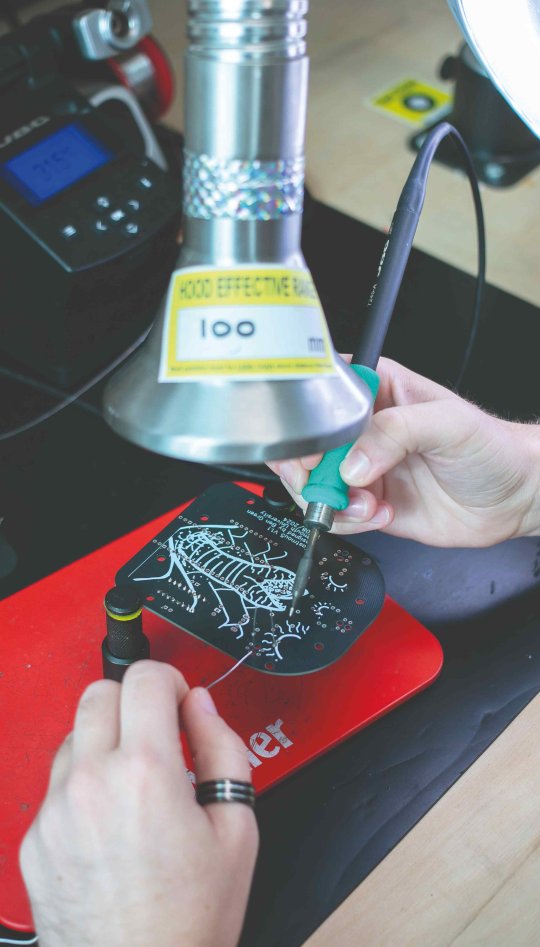
Software Engineering BSc(Hons)
Use your creative flair to build technology for good.
Course overview
Use your talents for creative problem solving and lateral thinking to excel on this BSc Software Engineering degree: where software engineering meets experience design, to improve people’s lives through technology.
This new Software Engineering degree from our award-winning and internationally acclaimed Games Academy is designed for people who through playfulness and ingenuity like to disassemble products, technology and ideas, to rebuild and them to suit modern user needs.
With a strong focus on in-demand industry skills such as interdisciplinary working, experience of cutting-edge development operations, software architecture, novel programming tools and computing – alongside solid foundations in system design and architecture– this Software Engineering degree is designed with your future career in mind.
Graduates from this course will be confident, resourceful software engineers with the skills and professional competencies needed to operate in the industry.
Why study this course at Falmouth?
- Develop advanced knowledge of software engineering and an understanding of the principles and theories associated with computing - two in-demand skills for industry
- Gain a deep understanding of core principles, with a particular emphasis on cutting-edge development operations and novel programming tools
- Gain a firm foundation in computer programming and software development practices, with an emphasis on agile methodologies and creative approaches to problem-solving
- Work using user-centred insights: incorporating this in analysis, design, implementation, and evaluation to create digital products and services that meet real market needs and work for real stakeholders
- Be part of a product team that collaborates across disciplines, on projects with real business potential for your final year Major Collaboration
Course details
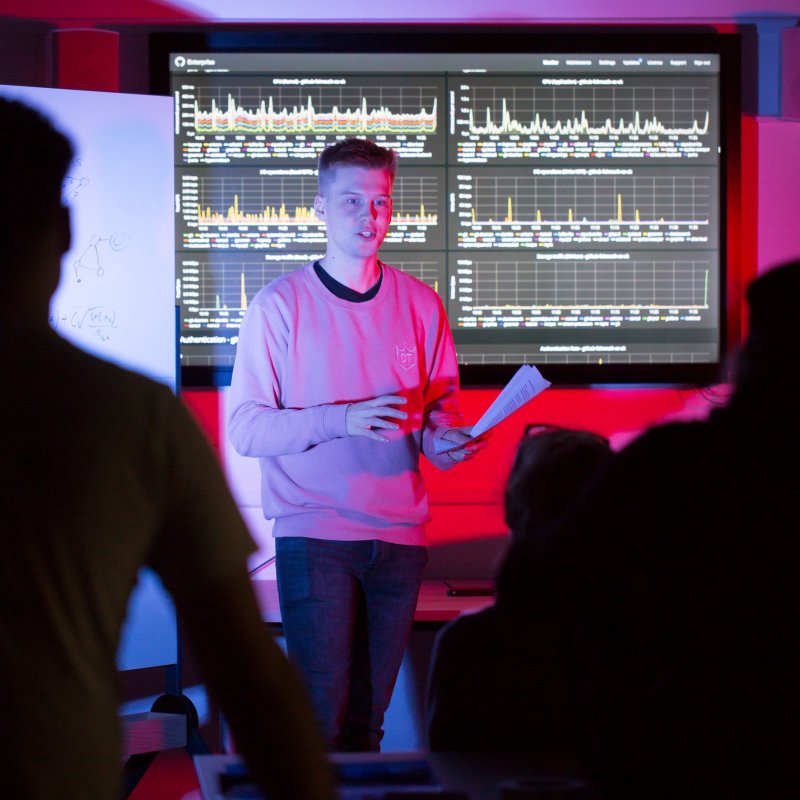
To achieve its aims, the Software Engineering degree is practically-orientated and challenge-led, adopting a ‘doing it for real’ ethos. On this course, you’ll immerse yourself in Falmouth’s interdisciplinary approach to collaboration and enterprise within software, gaming and digital products, helping you to innovate in this high-growth industry as part of a professional standard team.
You will nurture your cognitive, practical, and transferable skills by engaging with hands-on computing projects in a systematic, disciplined, and quantifiable way. As we direct you to apply various methods and techniques to build digital products and services, you will equip yourself with professional competences that are in-demand in the sector.
Course study options
You can gain your Software Engineering BSc(Hons) degree in three years or choose to add an Integrated Foundation Year and/or professional placement year. Discover the full course details for each study option, below:
Levelling the playing field
All the courses in the computing subject area share a common first year. No matter your background or experience, in this year you’ll level-up your knowledge of programming and mathematics through playful experimentation in collaboration with other students.
Modules
Your first year on this Software Engineering degree benefits from all the Games Academy has to offer; it’s a common first phase of study shared by all students in the computing subject area, so you get the opportunity to build and develop your broader technical skills before you specialise in software engineering.
You’ll gain experience of multidisciplinary teamworking, while exploring the different specialisms in computing that we offer, providing you with flexibility to switch into a different specialism if you choose.
Principles of Computing
In this module, you’ll learn the principles of computing, discrete mathematics, statistics and technical communication. Through a series of tasks, you’ll begin to use core computer science concepts, techniques and methods to solve practical problems and leverage algorithms in your solutions.
You'll also delve into the history of computing, engaging with the plurality of voices in the profession and the controversies evoked by algorithmic bias.
Digital Creativity
On this module, you will explore digital media formats including text, image and sound.
You’ll play, tinker, experiment with and extend digital artefacts, transforming what already exists in one form into another form as a means of appropriation. You will then integrate your digital artefacts with digital game technologies, notably game engines, to make them interactive in some way.
You’ll also consider moral and legal questions surrounding digital creativity, such as plagiarism, intellectual property law, licensing rights, representation and media literacy.
Development Foundations
On this module, you’ll gain foundational experience of the basic principles, terminology, roles and tools used in the development of digital products and services.
Through several small-scale team projects, you’ll practice a range of prototyping methods and pitch your idea for a future project. These projects will help you to develop your project management skills, while building a professional, inclusive and supportive studio culture.
Data Fundamentals
In this module, you’ll learn the fundamentals of the data science life cycle. This will include learning how to formulate questions, collect and clean data, explore and visualise data, make statistical inferences and predictions, and report insights in a way that informs decision making.
You'll also gain an awareness of the responsibilities, obligations and legalities of working with sensitive and personal data, including its collection, storage, analysis, management and transmission.
Individual Programming Project
In this module, you’ll refine your approach to computer programming by developing an architecturally sound project focused on object-orientated solutions.
Through this project, you’ll build your confidence with various interfaces that enable interaction within and across different system components. You’ll practice more disciplined software engineering methodologies, develop your mastery of the notations for describing and refactoring system architectures, and apply the mathematics associated with circuit design.
You’ll also gain a greater awareness of ethical considerations such as safety, accessibility, sustainability and the impact of supply chains.
Multidisciplinary Teamwork
On this module, you’ll work in multi-skilled teams to make a digital product or service in response to a prompt or brief.
This work will give you the opportunity to increase your knowledge of organising and managing a software development project. Working in a multidisciplinary team will also give you hands-on experience of the full systems development life cycle and production pipelines in an ‘agile’ context commonly used in professional practice.
By the end of the module, you and your team should have produced and evaluated a modest but functional proof of concept.
The second year involves much deeper specialism in software engineering, with course-specific modules complementing modules on key mathematical and computing topics.
You will also work in partnership with peers in other disciplines on a challenge-led brief to deliver working software to a client, mirroring industry practice.
Algorithms & Optimisation
Throughout this module, you’ll practice and develop your computing skills with a focus on the design and analysis of algorithms.
You’ll explore strategies for creating efficient and optimised code; learning to apply methods of profiling and resource management. You’ll also be challenged to consider sustainability as a theme for your optimisations, with attention to maximising the use and/or extending the lifecycle of hardware that is difficult to recycle, to reduce (notional) energy usage and to better manage processes with environmental impacts.
Computational Mathematics
You’ll learn key mathematic principles that underpin computing, such as linear algebra, geometry, trigonometry, 3D transformation, and calculus. You’ll then apply these principles to your own technical work.
You’ll also investigate the relationship between computational mathematics and cybersecurity. By exploring security topics such as common threats and attack vectors, cryptography and steganography, certification and malware, as well as defensive programming.
Software Architecture
On this module, you’ll adopt a design thinking approach to software development. This will involve a renewed focus on conveying your design ideas using modelling languages, and evaluating your designs through different lenses, for example, information, behaviour, structure, domain, function, and enterprise modelling.
You compare your designs using relevant analytic techniques and consider the different architectures that software can follow. In particular, investigating the merits and flaws of different approaches to structuring software systems, and informing how to maintain and refactor software, typically alongside the processes of decomposition, abstraction, and generalisation. You will also deepen your knowledge of established industry norms and design patterns by referring to relevant research as you write your own software and refine its design over several iterations.
Artificial Intelligence & Machine Learning
In this module, you’ll explore the challenges and opportunities of artificial intelligence and machine learning techniques. Considering real-world applications, you’ll conduct a practical research and development project looking to address a specific brief or challenge.
Through this work, you’ll get a chance to think about the legal, social, ethical, professional and sustainability implications of AI technologies. You’ll also examine how artificial intelligence and machine learning may impact computer technology and your future career aspirations.
Development Operations
You will explore strategies for planning, tracking, testing, and deploying codebases in a way that will continue to scale as the lifecycle progresses and investment increases. In particular, adopting continuous integration and deployment alongside version control practices. You will develop your knowledge of distributed systems, computer networks, server infrastructure, quality assurance, and the orchestration of non-trivial production processes. You will also be challenged to consider security as a theme to ensure that you adequately protect the intellectual property of your stakeholders while maintaining the integrity of your solutions.
You will be set a production to oversee and a set of requirements to address, with a view to ensure that the reliability of implemented solutions are maintained and to verify that the software continues to meet requirements. As part of this process, it will be important to document your development operations and be able to defend your management strategy at the conclusion of the module.
Embedded Systems
Embedded systems constitute multiple interacting components which might include sensors, actuators, various electronic circuits, mechatronics, and physical mechanisms. You will explore the design, engineering, and operation of embedded computer systems with particular attention to real-time processing and interfacing with computer hardware.
You will also need to consider the protocols and network technologies that facilitate system component distribution. Topics span: input/output; discretisation; analogue to digital conversion; timers; interrupts; pulse width modulation; control systems; serial communication; and higher level topics such as IoT implementation, TCP/IP, and mesh networks. You will also examine techniques including digital prototyping, simulation, and emulation.
The module will focus on teamwork, and you will be challenged to work with increasing effectiveness and productivity in a context with increasing technical sophistication and engineering complexity.
You can choose to take an optional professional placement after your second year on a three-year programme, or after your third year if you’re studying for a degree with an Integrated Foundation Year.
You’ll be responsible for finding your own placement, with support from the employability team.
Choosing this option will enhance your industry experience and skills while studying.
How you’ll study during your professional placement
You’ll spend time working in a professional context, as part of a business or organisation. This can be in one role, or up to three, and must be for a minimum of 24 weeks.
You’ll develop in-demand workplace skills, deepen your insight into industry and grow your network of contacts, all of which could help you get ahead in your career after graduation.
Throughout this year, you’ll develop a portfolio of work that includes critical self-reflection on what has been learned from the experience. You’ll be required to evidence your experiences, the skills you’ve learned and your professional growth.
In the third year of this Software Engineering degree, you’ll develop greater intellectual freedom, both as an individual but also in tackling a challenge in collaboration with others.
With modules focusing on developing your personal specialism in software engineering alongside stretching your collaboration skills and a final course-specific module, at the end of this year, you’ll have experience working in multidisciplinary teams and delivering a substantial development project.
Programming Tools
You will identify an opportunity to improve the software production process, devising a tool that will refine developer workflows.
Contexts can vary, but could include utilities for development operations, standalone computer-aided software engineering (CASE) tools, debugging extensions for an integrated development environment (IDE), content pipeline automation utilities that leverage generative artificial intelligence, or similar.
You will need to explore contemporary software engineering practice, bringing a critical eye to the day-to-day tasks of developers to identify and articulate the “need” for your proposed tool. You will also need to explore the frameworks and environments of your chosen context so that you can effectively build upon it. To support you in your endeavour, you will receive support with defining and working with application programming interfaces and in the conventions typical of such programming tools. Notably, how to adhere to system standards, license conditions, and platform specifications.
Renewing the focus on the human element of computer systems, you will also consider lessons learned from the literature on user experience design and design science more generally. The tool you build must be deployable, and you must demonstrate that it is fit-for-purpose and compliant with system requirements. You will also need to refactor the architecture of your solution to ensure that it is robust and performant.
Research & Development: Proposal
In this module, you’ll plan and commence an individual ‘major’ research and development project in computing. You can choose to conduct primary research centred on or supported by a novel computing artefact, or practice-based research with significant technical depth.
The development of your written proposal will include identifying an opportunity, critically reviewing relevant literature, setting a hypothesis and designing a mode of data collection, while considering all ethical implications, as well as prototyping a novel and substantial computing artefact.
Research & Development: Dissertation
On this module, you’ll continue your individual ‘major’ research and development project. Building upon the proposal you submitted, you’ll further develop your prototype computing artefact into a potentially deployable solution. In doing so, you’ll deepen your knowledge of software engineering, the use of advanced research tools, technical writing and academic conventions, as well as the interpretation and visualisation of results from statistical analyses of quantitative data.
Under the supervision of a subject-matter expert, you will: realise a novel and substantial computing artefact; execute your research and development; and critically analyse your results, disseminating your findings through a written academic dissertation. You’ll also present your insights to peers alongside a demonstration of the final computing artefact, referring to the potential impact of your project, any ethical concerns, and potential future work.
Digital Innovation
You will develop your commercial awareness and entrepreneurial mindset.
You will consider knowledge and skills that are equally applicable to setting up your own business, establishing yourself as a freelancer, or for use as an employee in a business or organisation. This will help you to further develop your goals, values, and employability skills, as well as to explore options available to you.
You begin by critically evaluating market opportunities, exploring how businesses can operate, and comparing how intellectual property can be managed through granted rights, contract, trade secret, and incorporation. Contexts will vary, but could include products and services across a wide range of digital contexts. You form teams around enterprise opportunities to devise a project proposal. You will then be immersed in practical learning where you identify an opportunity for innovation and develop your own concept through a pre-production process.
Branding, cash flow modelling, enterprise planning, developing intellectual property, and more will feature to culminate towards an investment-style pitch in which you present your proposed product or service.
Major Collaboration
In this module, you’ll leverage your experiences from the prior stages of the course to deliver a substantial collaborative project. You’ll work in a multi-skilled team to design and implement a potentially innovative product or service.
Typically, this will be the continuation of your previous project, but it could also be a newly proposed project that satisfies a real need, a response to a market opportunity identified by the University, a live brief from or collaboration with industry partners or research teams, or a solution to a problem presented by an external stakeholder.
You will continue to put into practice the ethically-informed methodologies you have explored in previous modules. Contexts can also vary but could include: enterprise solutions; mobile apps; installations; games; web applications; robots; immersive experiences; software development tools; and more.
We regularly review course and module content to ensure our students receive a high-quality and rewarding academic experience. As such, there may be changes made to the curriculum which are not immediately reflected in the content displayed on our website. Optional modules may be updated to maintain the best experience. Any students or applicants affected will be informed of approved changes directly.
How you'll learn & be assessed
You will learn in an environment mirroring the industry, with technical workshops and tuition boosted by collaborative, studio-based projects. Individual and group projects with students from other disciplines will be key to your development. You'll create software, devise new applications for computing, generate solutions to technical problems, and build new digital products or services.
- Demonstrations
- Studio Practice
- Project Supervision
- Lectures
- Seminars
- Practical Workshops
- Crit Sessions
- Tutorials
- Guest Speakers
- Mentoring
- A focus on team-working and project development in multi-skilled teams
- Group working strategy
- Poster Assessment Strategy
You'll be assessed 100% through coursework only. This can take many forms, including:
- Practical projects
- Papers
- Pitches
- Portfolios
Designed to mirror industry practice, you'll be continually assessed on group projects through a group working strategy and be able to practice exhibiting in a trade-show style with our poster assessment strategy.
Why study at Falmouth's Games Academy?
Our vibrant community is creative and collaborative. Great programming requires imagination, flair and problem-solving skills. Here at Falmouth, we champion creativity and the creative mindset.
In the Games Academy, technologists from a diverse range of specialisms from games and immersive experiences to robotics and artificial intelligence are working with artists and designers to bring projects to life. We have a track record of market-led incubation and entrepreneurial activity, and our students own the intellectual property they develop here with us, meaning their work can be commercialised for their profit.
In our industry-facing institution, you get the opportunity to pursue project opportunities which leverage real-time interactive simulation technologies and emerging forms of procedural content development. We have a hands-on approach to learning, which celebrates the making of things and strives to mirror industry practice, equipping you with the skills and expertise to hit the ground running in your career after graduation.
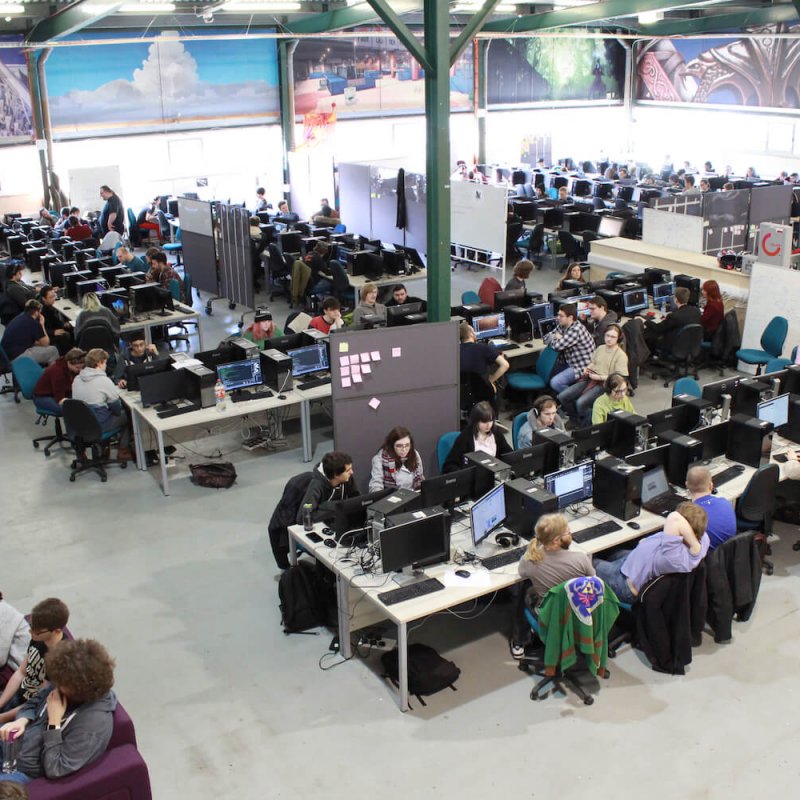
We're an Educational Affiliate of the British Computer Society
The Games Academy is an affiliate of the British Computer Society (BCS), the Chartered Institute for IT. This means our computing qualifications are continually reviewed and updated to meet the needs and demands of the future workforce.

Stories from our community

Game Development graduate on making retro games and his YouTube following
29 January 2026
From building minigames in LittleBigPlanet as a teenager to releasing homebrew (unofficial hobbyist)...

Why I returned to study an Indie Game Development master’s while teaching
27 January 2026
After years working across games and education, Jess Bradshaw chose to return to study with a clear ...

Game Art graduate reaches finals in international team challenges
20 January 2026
BA(Hons) Game Art and MA Game Art graduate Eden Gates has reached the finals of two team-based game ...

Game Development Writing graduate builds career in community management
25 November 2025
For Liam Gregory, studying Game Development: Writing BA(Hons) at Falmouth opened the door to far mor...
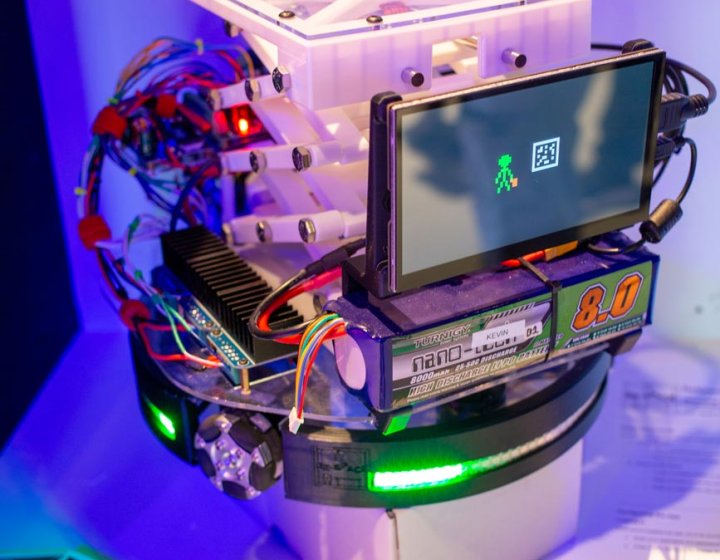
What is Creative Computing?
24 November 2025
Senior Lecturer in Computing, Matt Watkins explores what creative computing is and how it’s transf...

Falmouth University awarded £1.4m to power the future of creative design and manufacturing
18 November 2025
New state of the art design and advanced manufacturing facilities for students at Falmouth Universit...

Dr William Huber honoured with Horizons Faculty of Excellence Award
11 November 2025
Falmouth University’s Associate Professor of Game Studies, Dr William Huber, has received internat...

Game Animation student on joining renowned games studio
06 November 2025
Since graduating from Game Animation BA(Hons) at Falmouth, Brendon Chadwick has landed a dream start...
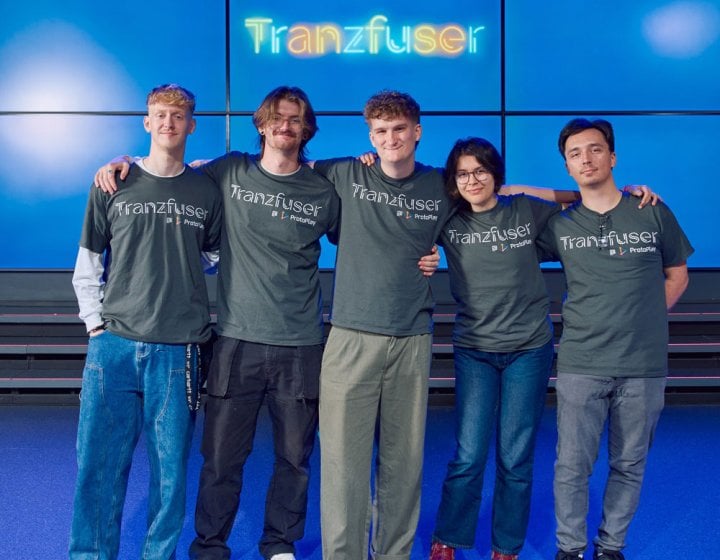
Games Academy graduates win national Tranzfuser competition
04 November 2025
Studio Whalefall, a team of Falmouth Games Academy graduates, is celebrating success after winning T...
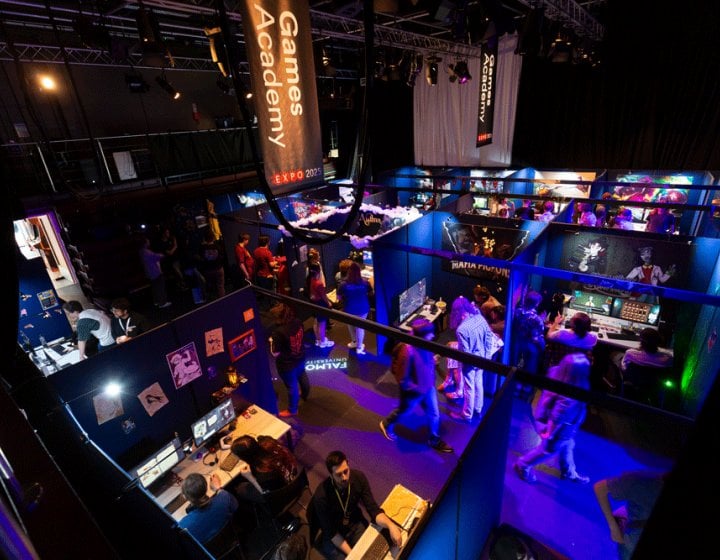
A catalyst for creativity and innovation: a decade of Falmouth University's Games Academy
21 October 2025
When Falmouth University launched its Games Academy in 2015, it did so with a bold premise: that gam...

Playing the Game: What Celebrity Traitors reveals about strategy, authenticity and the self
16 October 2025
When The Traitors first appeared on television, few could have imagined that a game once played in t...

The difference between studying Game Art and Game Development: Art
15 October 2025
With two Game Art undergraduate degrees within the Games Academy, you might need a hand picking betw...
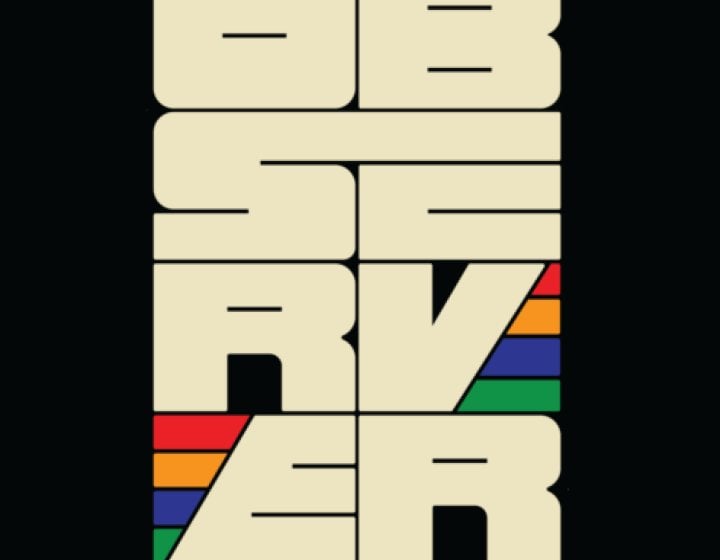
Lecturer’s game studio wins national award for championing games education
07 October 2025
Observer Interactive, the independent studio co-founded by Matty McGrory, Senior Lecturer in Indie G...

How a passion for cars led to a career in games and teaching Game Art
03 October 2025
Lee Walton’s route into games was anything but typical, moving from car design into roles at leadi...
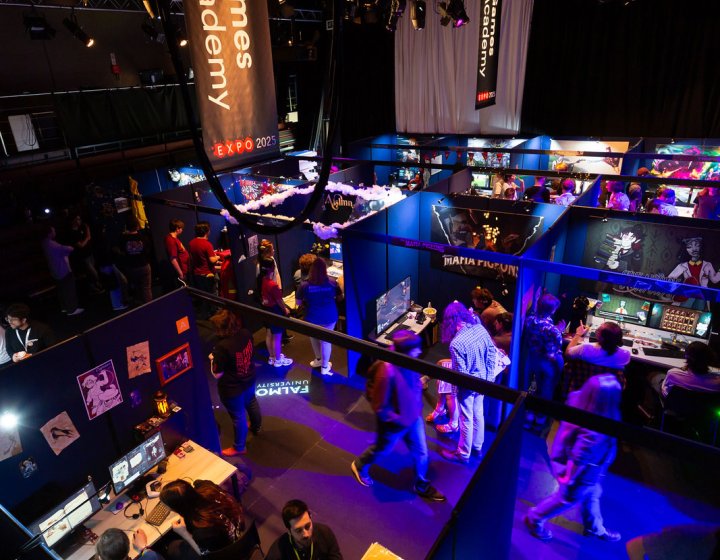
Forging Futures: How Falmouth University’s Games Academy became a catalyst for creativity and innovation
02 October 2025
When Falmouth University launched its Games Academy in 2015, it did so with a bold premise: that gam...

An international student’s journey on Falmouth’s MA Game Art
25 September 2025
For Anosh Saji, choosing to study a master’s in Game Art at Falmouth was about more than gaining s...

Indie Games Online student completes 12 games in 12 weeks project
23 September 2025
For his final major project on the Indie Game Development MA (Online), Mathijs Koning set himself a ...
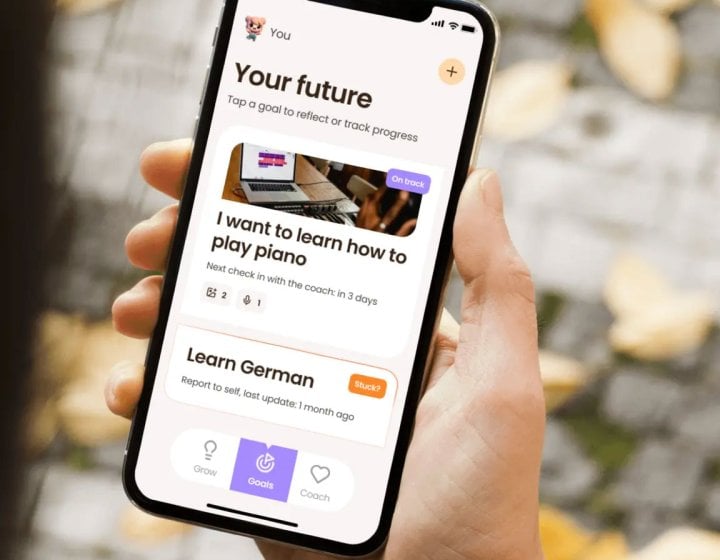
User Experience graduate on exploring scent, further study and starting a business
18 September 2025
When we think about digital design, we tend to think of screens, buttons and code. For User Experien...

Game Art lecturer on character creation and collaboration
16 September 2025
We chatted with senior lecturer in Game Art, Michael Boylan, on how games are almost never made in i...
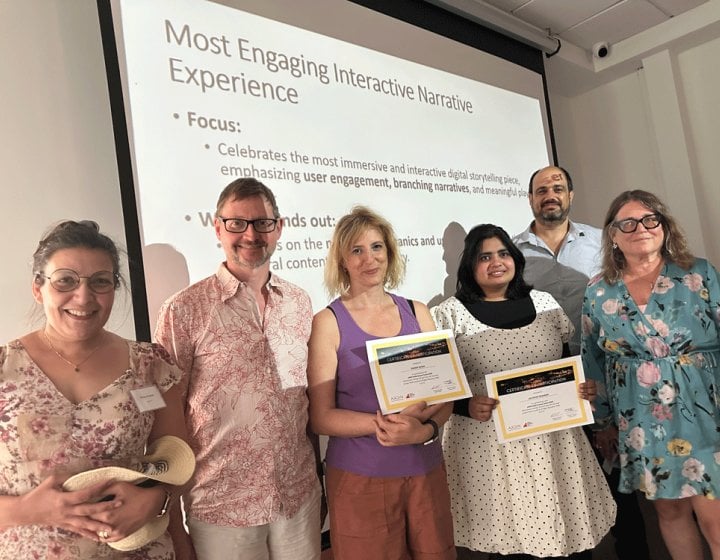
Meet the Game Programming lecturer at the cutting edge of interactive design
16 September 2025
Anjuman Shaheen, Lecturer in Game Programming MSc, has completed an intensive summer school in Malta...
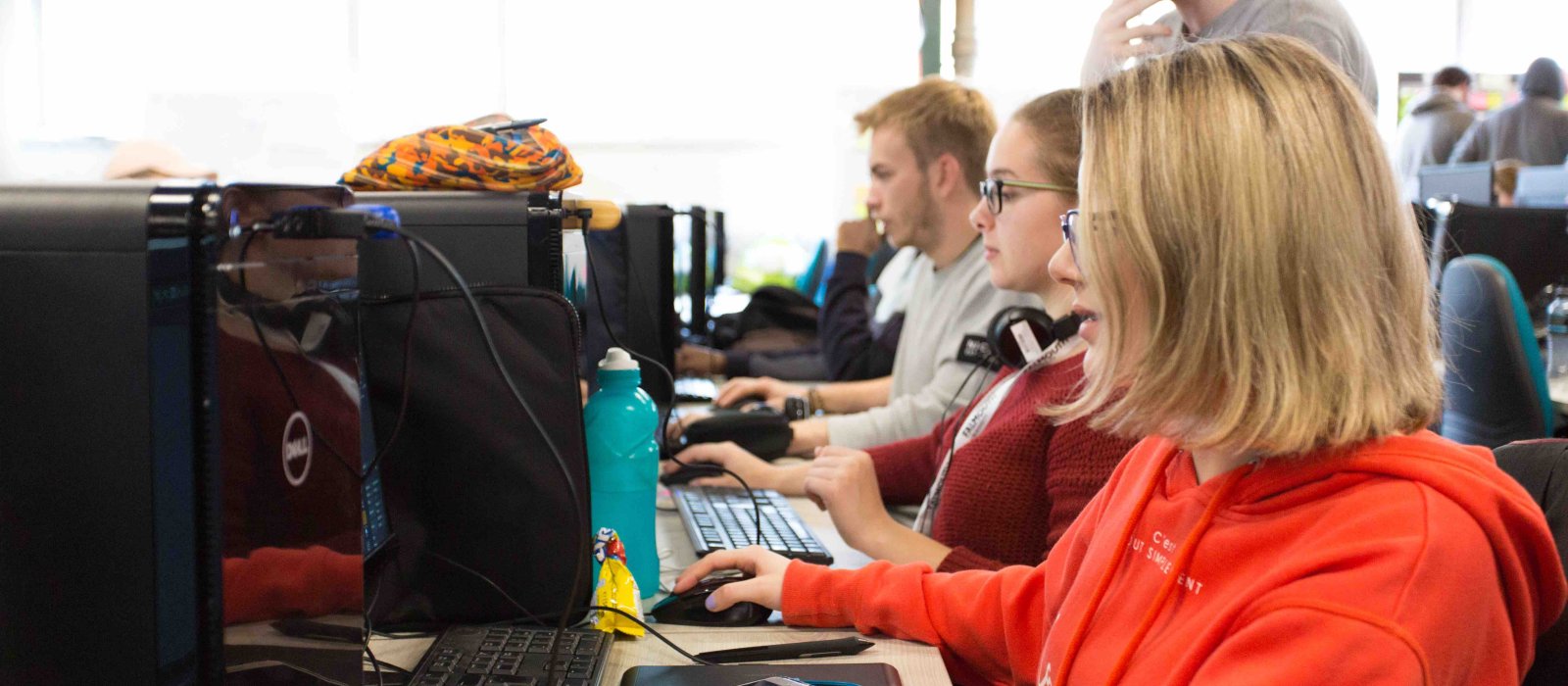
Facilities
The Games Academy is home to state-of-the-art development and computing studios, housing modern technology and professional-standard facilities:
- Modern i7 machines
- Attached labs for console development, immersive experience design, and robot fabrication
- Specialised computing hardware for game development, deep learning projects, motion capture, and immersive experiences
- Standard packages used in software development for the creative industries, including Adobe and Autodesk suites
There is also 24/7 IT Suite access in the campus Library.
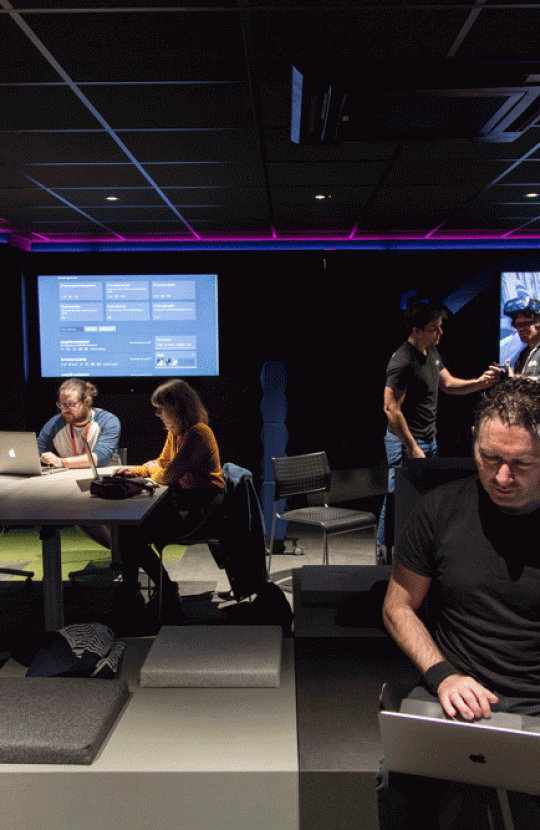
Virtual tour
Discover where you’ll spend your time as a student with our 360° tour, showcasing our facilities, accommodation, town and scenery.
Staff
Join a vibrant community of artists, writers, designers, animators, composers, producers, entrepreneurs, programmers and other computing enthusiasts. Taught by a blend of academic and industry experts with many years of related experience working with relevant technologies in their respective contexts.
This includes computer science scholars and researchers working in the fields of games, web development, immersion, user research, and artificial intelligence.
The Games Academy also has connections with companies large and small, international and local, within or benefiting from computing.

Dr Michael Scott
Head of Computing and Associate Professor of Computer Science Education
Dr Michael Scott is the Head of Computing and Associate Professor of Computer Science Educ...

Dr Joseph Walton-Rivers
Course Leader: Computing
Joseph Walton-Rivers is the Course Leader for Computing within the Games Academy. He joined the univ...

Dr John Speakman
Lecturer
Dr John Speakman is a Lecturer with the Games Academy. He joined Falmouth University in May 2016, to...

Matt Watkins
Lecturer in Computing
Matt is an artist, lecturer, developer and designer. He has been responsible for the visual and tech...
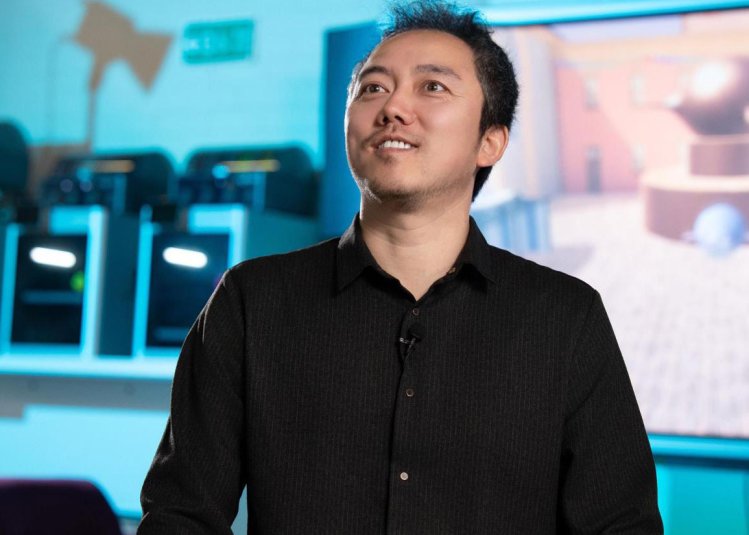
Dr Daniel Zhang
Senior Lecturer in Artificial Intelligence & Machine Learning
Daniel joined Falmouth University in 2023 as a Senior Lecturer in Artificial Intelligence and Machin...
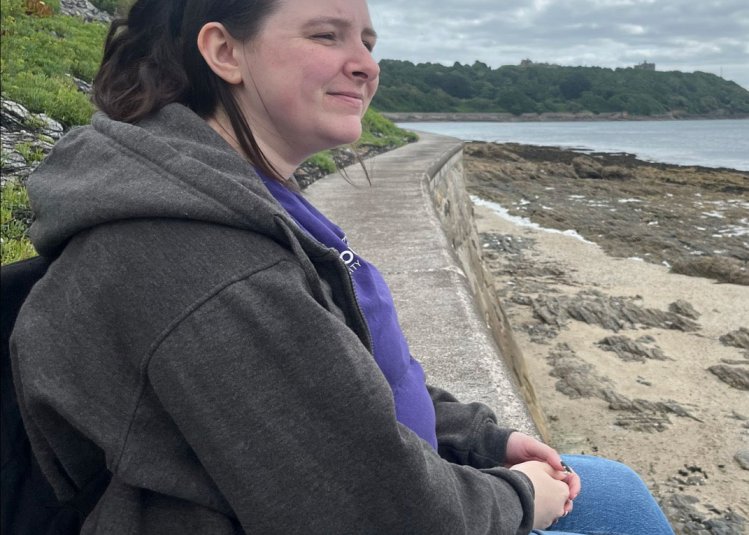
Lucy Stent
Game Programming and Game Development Foundation Lecturer
Lucy has been at Falmouth University since 2016. during her years here she has won many scholarships...

Byron Crowhurst
Senior Technician
Byron Crowhurst is a Senior Technician at the Games Academy at Falmouth University. Byron began work...
Some members of staff only teach on specific modules, and your course might not feature every staff member who teaches on the course.
Careers
Graduates from this Software Engineering degree could go on to careers such as:
- Software Engineer
- Software Developer
- System Designer
- System Architect
- Development Operations Specialist
- Programmer
- Test Engineer
- Project Manager
- Technical Manager
- Systems Analyst
- Further Study or Research
How to apply
Ready to apply for 2026?
You can apply for our undergraduate degrees via UCAS. You'll need our university UCAS code (F33) as well as your course code (which you'll find on your course page) for your application.
Applying as an international student?
There are a number of different ways to apply to study at Falmouth as an international student. Find out how you can become part of our creative community.
| Course route | UCAS code |
|---|---|
| Software Engineering BSc(Hons) three year degree | I300 |
| Software Engineering BSc(Hons) with professional placement | I301 |
| Software Engineering BSc(Hons) with Integrated Foundation Year | FY65 |

Explore our application advice
Go to ToolkitFor starting your studies in 2026
UK applications: 14 January 2026 (for equal consideration)
Applications after the 14 January will be considered on a first-come, first-served as long as there are places available. Apply for this course now.
For starting your studies in 2027
UK applications: 13 January 2027 (for equal consideration)
International fee payers
International fee payers can apply throughout the year. But we recommend applying as early as possible, to make time for visa and travel arrangements.
We consider all applications on their own individual merit and potential and welcome applications from all subject backgrounds, whether you've specialised in STEM, the arts or humanities.
We welcome applications from all subject backgrounds, whether you’ve specialised in STEM, the arts or humanities. Find out more about our Entry Requirements here.
Course routes & entry requirements
BSc(Hons) three year degree
- Minimum 104 UCAS Tariff points
- GCSE Mathematics Grade 4 (C)
BSc(Hons) four year degree with professional placement
- Minimum 104 UCAS Tariff points
- GCSE Mathematics Grade 4 (C)
BSc(Hons) four year degree with Integrated Foundation Year
- Minimum 80 UCAS Tariff points
At Falmouth, we'll consider the equivalency of your specific qualifications against our entry requirements and support you through your application journey.
View our International Entry Requirements
Language requirements
For applicants whose first language is English we require you to have or be working towards GCSE English Language Grade 4 (C), or equivalent.
If English is not your first language you will need to meet the same standard which is equivalent to the IELTS Academic 6.0 overall score, with at least 5.5 in Reading, Writing, Speaking and Listening. We accept a range of in country equivalencies and approved tests.
If you need a student visa to study in the UK, you may need to take a recognised language test. You can read our English Language Requirements for more information.
Fees, costs & funding
Tuition fees
| Annual tuition fee | Student |
|---|---|
| £9,790 per year | Full-time UK |
| £19,950 per year | Full-time EU/international |
| £1,955 per professional placement year | Full-time UK and EU/international |
| £9,790 per Integrated Foundation Year | Full-time UK |
| £19,950 per Integrated Foundation Year | Full-time EU/international |
| Annual tuition fee | Student |
|---|---|
| £9,535 per year | Full-time UK |
| £17,950 per year | Full-time EU/international |
| £1,905 per professional placement year | Full-time UK and EU/international |
| £9,535 per Integrated Foundation Year | Full-time UK |
| £17,950 per Integrated Foundation Year | Full-time EU/international |
Tuition fees for September 2027 will be confirmed in summer 2026.
Tuition fees are set annually and are subject to review each year. The University may therefore raise tuition fees in the second or subsequent years of a course, in line with inflation and/or the maximum permitted by law or Government policy. Students will be notified of any changes as soon as possible.
The figures above don't include accommodation and living costs
Typical course costs
- £900 - £1,200 approx - Laptop or desktop capable of running appropriate software
- £40 - Consumable electronics
- £30-£150 - Headset with microphone
- £25-£100 - Webcam
If you need to bring equipment or materials with you, these will be outlined in your Welcome Letter
Course equipment and costs
You will need access to your own private personal computer to be able to put in the computer programming practice that is needed to become a computing professional. A suitable personal computer for this course will likely cost around £1,500. The latest advice about which computers we recommend you buy for your course is available here: link.falmouth.games/computer-advice
You will also have access to machines with a very high specification in our studios where you’ll be expected to do most of your work. It is important that you have a reliable internet connection, as some materials are made available to you through our virtual learning environment. We recommend a fibre broadband connection if available, but a minimum of at least 5Mbps will be suitable for livestreaming content.
Consumable electronics
You must reserve a budget of at least £40 to purchase additional materials and electronic components for your individual creative computing project.
Headset with Microphone
You will need a headset with a microphone for some classes. We recommend purchasing a high-quality headset for your comfort. Manufacturers such as Sennheiser, Razer, HyperX and Corsair are rated highly by our current students. These can cost between £30 - £150.
Webcam
You will need a webcam in some teaching. Manufacturers such as Logitech, Microsoft, and Razer are rated highly by our current students. These can cost between £25 - £100. If you have further questions, need more detailed advice or would like us to check the suitability of a particular model, then please email games.support@falmouth.ac.uk
Additional typical course costs for Integrated Foundation Year pathway
- £250 for materials
- A laptop/desktop computer
- Adobe Creative Suite
To engage in the digital learning activity, although you will be able to access IT suites on campus, you will benefit from a laptop to access the platforms and tools we use. Depending on your subject, you may need a specific type of computer. If you're unsure about what you might need, please contact our course advisors.
Course equipment and costs
- Computer - £1500
- Headset - £30-£150
- Webcam - £25-£100
Funding
For information about funding available, please visit our student funding pages.
Similar courses
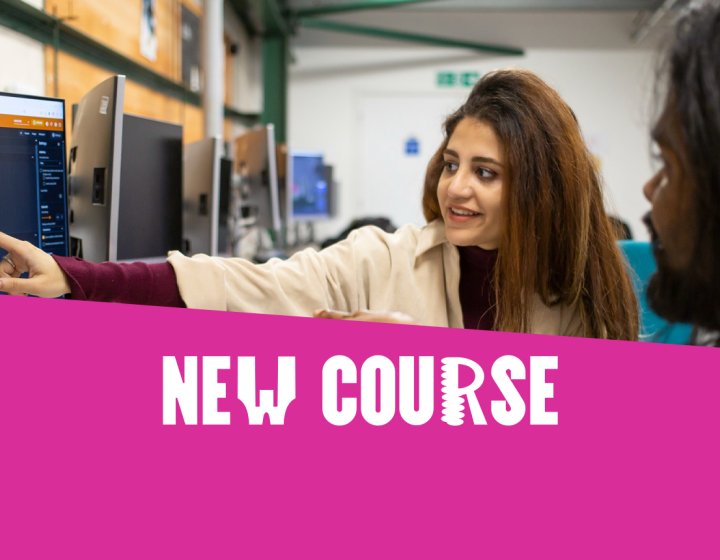
Artificial Intelligence BSc(Hons)
Artificial intelligence is transforming every corner of our world: from cars that drive themselves t...
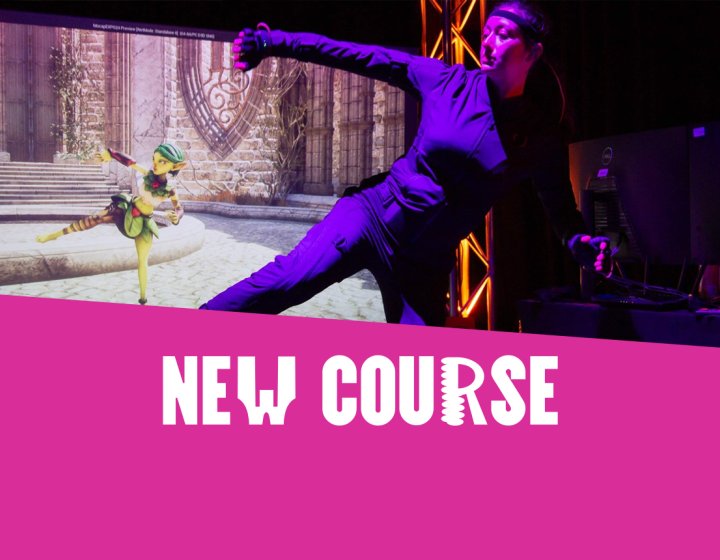
Creative Computing BSc(Hons)/BA(Hons)
Work across creative disciplines to explore creative coding, interactive systems, digital storytelli...
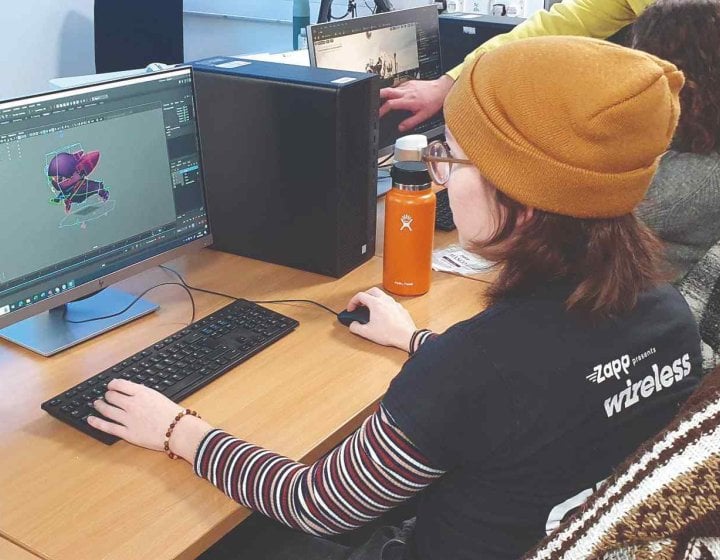
Game Animation BA(Hons)
Gain experience of working to a real-time animation pipeline and graduate with a rich portfolio of w...
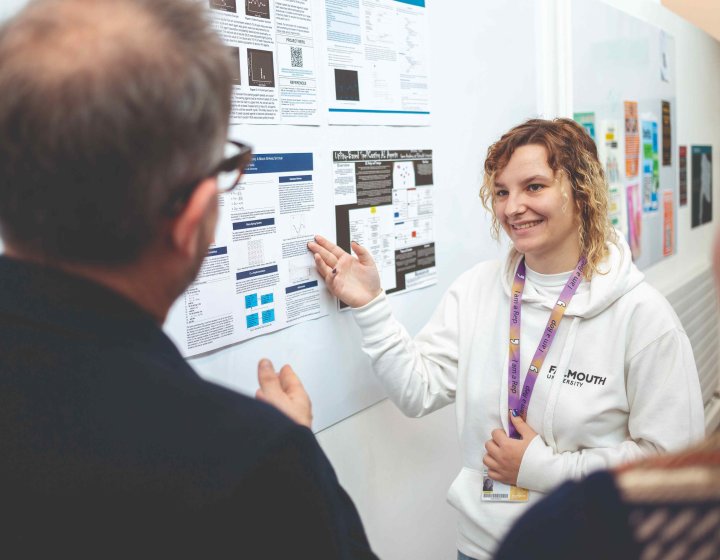
Computer Science BSc(Hons)
New immersive realities, data-rich interactions, automations and ever-more ubiquitous systems are sh...
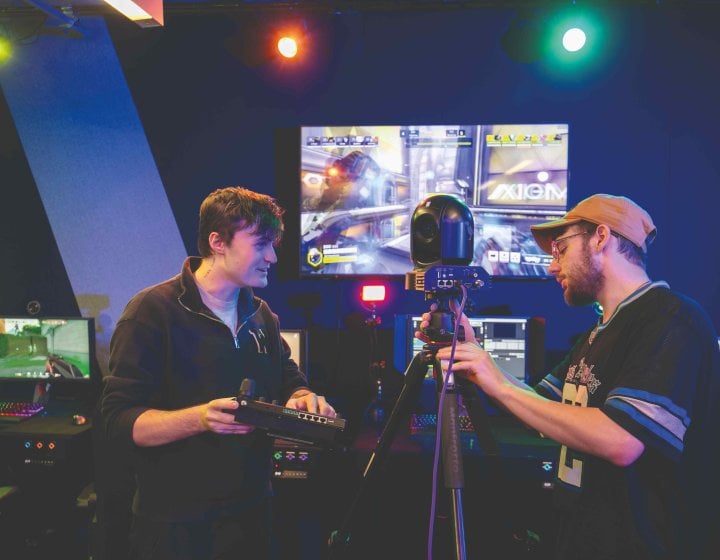
Esports & Livestreaming BA(Hons)
Immerse yourself in Esports culture on this degree, which offers a unique opportunity to be at the f...
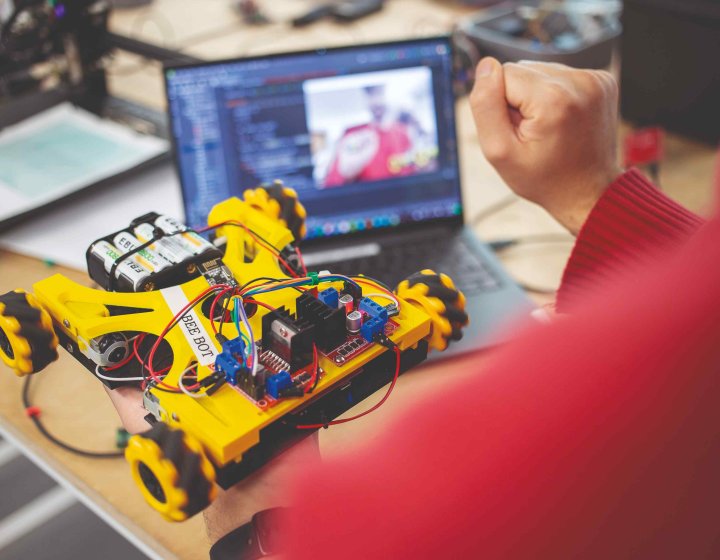
Robotics BSc(Hons)
Explore the world of artificial intelligence and create interactive robots that respond to the chall...
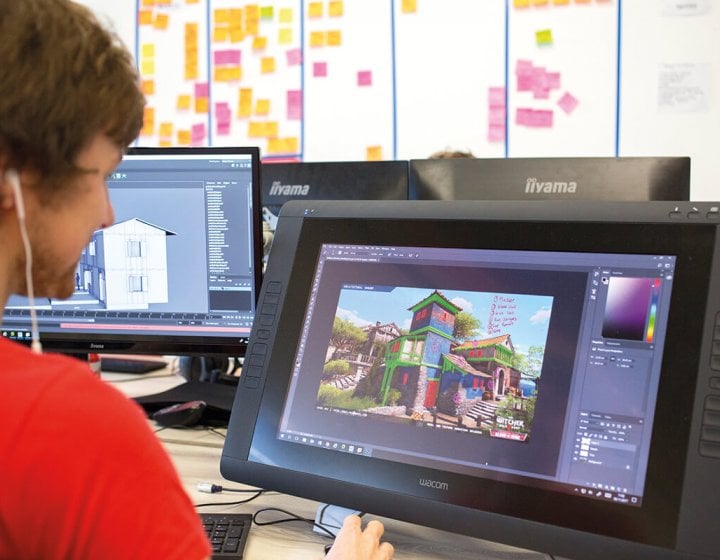
Game Development BA(Hons)
Join a community of people who have a passion for games. From day one, you’ll work as you would wi...

Game Art BA(Hons)
Work in multi-skilled collaborative teams and graduate as a confident, industry-ready game artist. ...
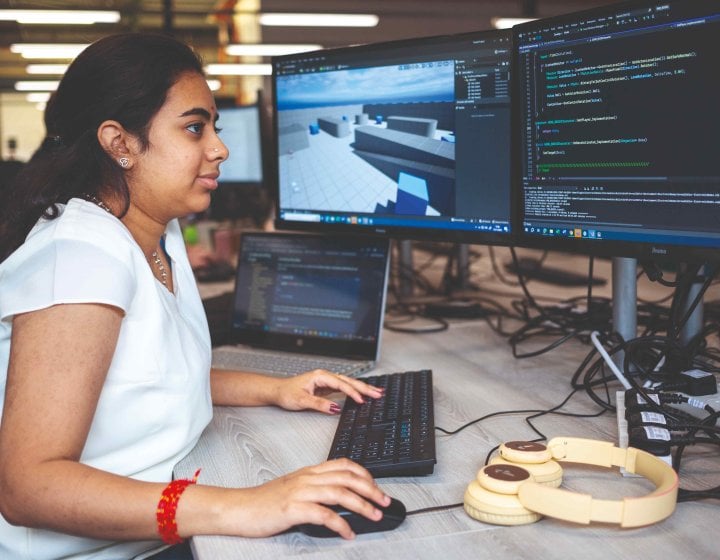
Computing for Games BSc(Hons)
Learn how to shape the games of the future by studying game development through the lens of computer...
Open Days and events
From visiting campus to online application advice, get all the information you need about joining our creative community.
Find an event
